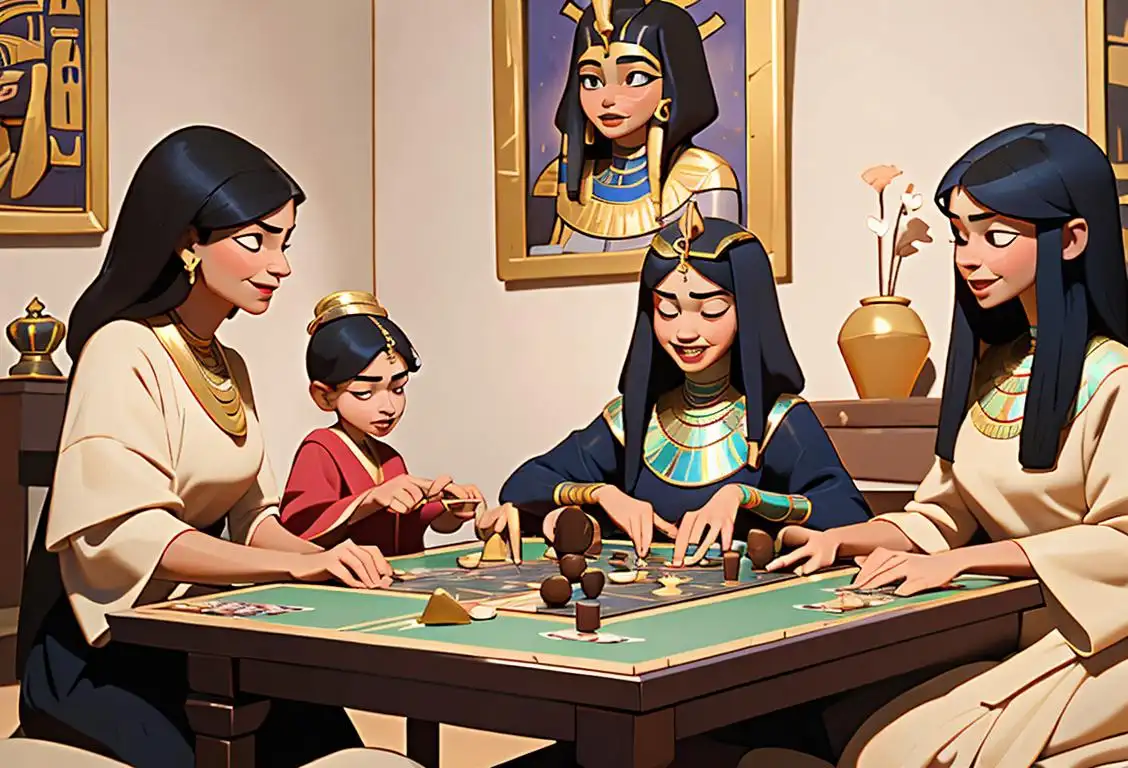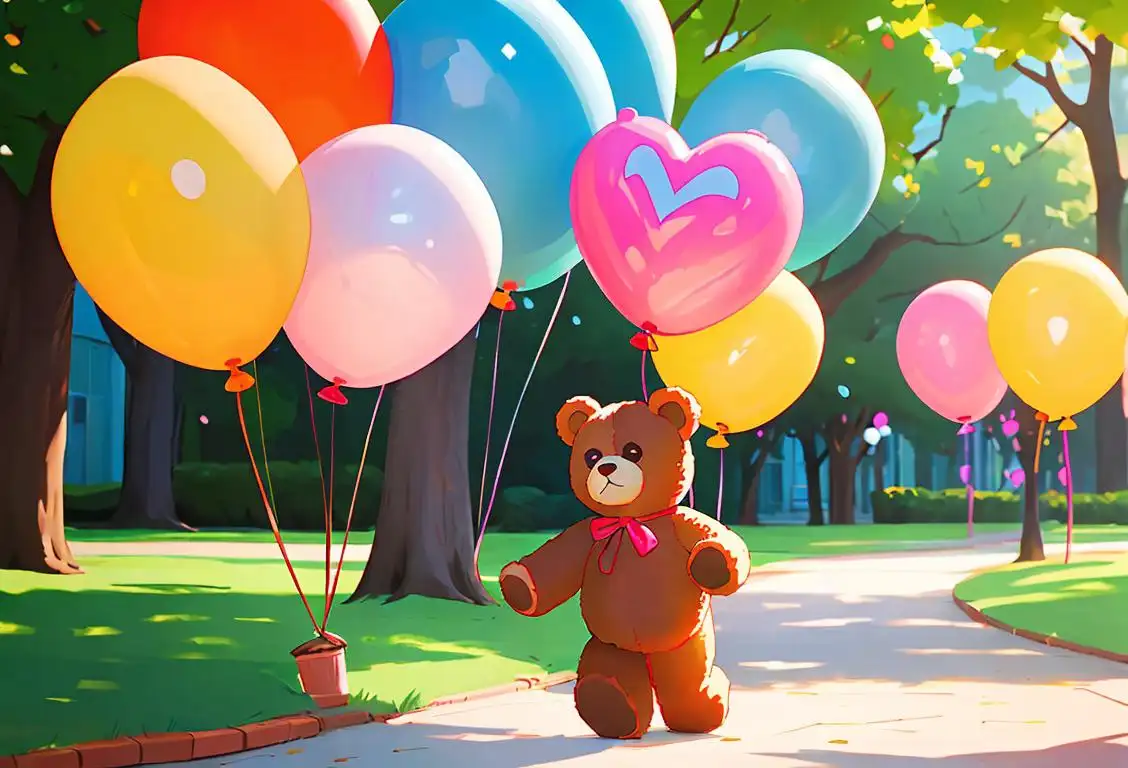National Board Game Day

Ready your dice, dust off that Snakes and Ladders board, and prepare your best Monopoly strategy! Why you ask? Well, let's set the scene. It's National Board Game Day! A day dedicated to the joys of point-scoring, family arguments, and last-minute victories that can make you the hero or the villain of your living room.
When is Board Game Day?
It's national board game day on the 11th April.
History of National Board Game Day
Contrary to popular belief, the origins of board games date back further than that time your Uncle Fred flipped the Scrabble board in a tantrum. Ancient civilizations all around the globe participated in their versions of board games. Egyptians played 'Senet', and the Romans had 'Ludus latrunculorum'. But nowadays, it's less about looking cool in a toga, and more about unleashing your inner competitive spirit onto an unsuspecting Just Dance board.
National Board Game Day, however, is a much more recent invention. Judging by internet records, celebrations really started to pick up steam in 2020. With people seeking indoor entertainment during lockdowns, board games became the heroes of our nighttime routines, featuring 17 times across various articles, blogs and social media posts, hitting an all-time high on 11th April 2020.
The Importance of National Board Game Day
National Board Game Day isn't just a sensationalized showdown in household competition, it brings people together, creating laughter and lasting memories. Okay, sometimes it involves tears and temper tantrums too (we're looking at you, Uncle Fred), but focusing on the positive - it's a fantastic way to bond with loved ones, whether you're a master strategist of Chess or Clue champion.
Celebrating National Board Game Day
You're now part of an ancient tradition of board games - no pressure! These family-friendly celebrations can range from a quiet night in with Scrabble to a raucous group session of Twister. So roll those dice, shuffle those cards, and get ready to navigate your way to Board Game Glory! Remember, try to be a graceful winner...and an even more gracious loser. Let's keep it friendly, folks!
History behind the term 'Board Game'
3000 BC
Ancient Origins
Board games can be traced back to ancient civilizations, with the earliest known examples dating back to around 3000 BC in Egypt. These early games were often played on boards carved from stone or wood, with simple designs and rules. They provided entertainment and served as a way for people to socialize and engage in friendly competition.
3500 BCE
Ancient Beginnings
The origins of board games can be traced back to 3500 BCE in ancient Mesopotamia. Archaeological evidence shows that the ancient Sumerians played a game called 'The Royal Game of Ur.' This game was played on a square-shaped board with 20 squares on each side, and players would use dice-like objects to determine their moves. The discovery of this game provides insights into the early development of board games and their cultural significance in ancient civilizations.
13th Century
Royal Games
During the 13th century, board games gained popularity among the nobility in Europe. Games such as Chess and Backgammon became known as 'table games' and were often played in royal courts. Board games were not only a source of entertainment but also served as a way for nobles to display their intellectual skills and strategic thinking.
400 BCE
The Rise of Chess
During the 4th century BCE, the game of chess began to emerge in the Indian subcontinent. Originally known as 'Chaturanga,' chess quickly gained popularity and spread across different regions. By the 6th century CE, the game reached Persia and underwent significant changes. Chess became a symbolic representation of warfare and strategy, reflecting the societal values of the time. The game later spread to the Islamic world and eventually Europe, where it became one of the most renowned and influential board games in history.
19th Century
Industrial Revolution and Mass Production
The Industrial Revolution in the 19th century had a significant impact on the production and availability of board games. With advancements in printing technology and the mass production of goods, board games became more accessible to a wider audience. Games like Snakes and Ladders and Ludo emerged during this time, offering simple yet engaging gameplay for families and children.
1800s
Industrial Revolution and Modernization
The 19th century marked a significant turning point for the board game industry. The industrial revolution brought about advancements in printing, materials, transportation, and leisure time. This led to the mass production and commercialization of board games. Influential games like 'The Mansion of Happiness' (1843) and 'Monopoly' (1935) gained popularity during this period. The widespread availability of board games allowed people from various backgrounds to engage in interactive play and entertainment, fostering social interactions and family bonding.
Mid-20th Century
The Golden Age of Board Games
The mid-20th century witnessed a surge in the popularity and diversity of board games. Milton Bradley Company, Parker Brothers, and other major game manufacturers released classics such as 'Scrabble' (1948), 'Risk' (1957), and 'Candy Land' (1949). These games introduced innovative mechanics and themes, captivating players of all ages. The rise of television and media advertising further promoted board games, turning them into a staple of family entertainment. The cultural impact of board games expanded as they became icons of pop culture.
20th Century
Board Game Resurgence
In the 20th century, board games experienced a resurgence in popularity. Classic games like Monopoly, Scrabble, and Clue were introduced and became household names. These games provided entertainment for families and friends and became an integral part of social gatherings. Many board games during this time incorporated innovative mechanics and themes, appealing to a wide range of interests.
21st Century
Board Game Renaissance
The 21st century marked a renaissance for board games, as they gained renewed popularity and expanded their reach through digital platforms and online communities. Additionally, a wave of designer board games, often referred to as 'Eurogames' or 'modern board games,' emerged and introduced unique mechanics, immersive storytelling, and strategic depth. This new era highlighted the social and interactive nature of board games, fostering face-to-face interactions in a digital age.
21st Century
Digital Transformation
With the advent of technology, board games have undergone a digital transformation. Online platforms and mobile applications have made it possible for players to enjoy board games virtually with friends and strangers from around the world. Digital adaptations of classic board games like 'Settlers of Catan' and 'Ticket to Ride' have gained immense popularity. Additionally, video game consoles and virtual reality have expanded the boundaries of board game experiences by integrating immersive elements. Despite these advancements, traditional board games continue to thrive and maintain their cultural significance in the modern era.
Did you know?
Did you know that the longest recorded Monopoly game lasted a whopping 70 straight days? That's dedication, folks!Tagged
awareness fun loved ones rememberance gamesFirst identified
11th April 2015Most mentioned on
11th April 2020Total mentions
17Other days
Board Game Day
Teddy Bear Day
Pumpkin Day
Biscuit Day
Cancer Survivors Day
Agriculture Day
Sibs Day
Suicide Prevention Day
Memorial Day
Cheese Lovers Day








